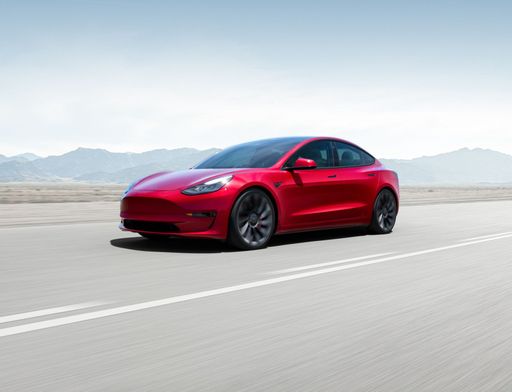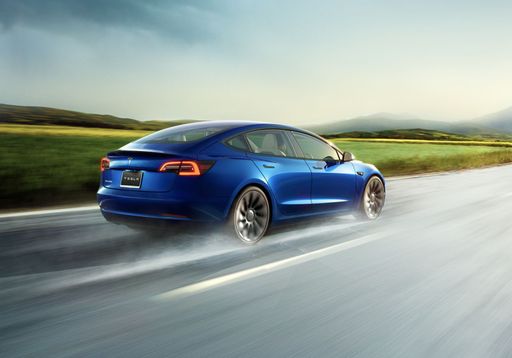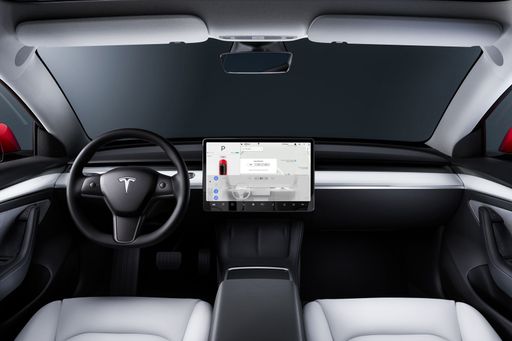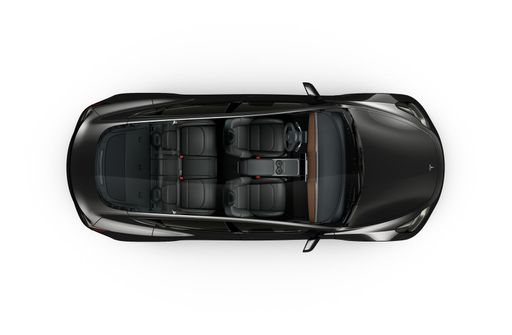Peugeot 208 vs Tesla Model 3 - Differences and prices compared
Costs and Efficiency:
Looking at overall running costs, both models reveal some interesting differences in everyday economy.
Peugeot 208 has a convincingly advantage in terms of price – it starts at 20700 £, while the Tesla Model 3 costs 34300 £. That’s a price difference of around 13595 £.
In terms of energy consumption, the advantage goes to the Tesla Model 3: with 13.20 kWh per 100 km, it’s slight more efficient than the Peugeot 208 with 14.10 kWh. That’s a difference of about 0.90 kWh.
As for range, the Tesla Model 3 performs significantly better – achieving up to 750 km, about 318 km more than the Peugeot 208.
Engine and Performance:
Under the bonnet, it becomes clear which model is tuned for sportiness and which one takes the lead when you hit the accelerator.
When it comes to engine power, the Tesla Model 3 has a decisively edge – offering 460 HP compared to 156 HP. That’s roughly 304 HP more horsepower.
In acceleration from 0 to 100 km/h, the Tesla Model 3 is clearly quicker – completing the sprint in 3.10 s, while the Peugeot 208 takes 8.30 s. That’s about 5.20 s faster.
In terms of top speed, the Tesla Model 3 performs noticeable better – reaching 262 km/h, while the Peugeot 208 tops out at 200 km/h. The difference is around 62 km/h.
There’s also a difference in torque: Tesla Model 3 pulls clearly stronger with 660 Nm compared to 270 Nm. That’s about 390 Nm difference.
Space and Everyday Use:
Cabin size, boot volume and payload all play a role in everyday practicality. Here, comfort and flexibility make the difference.
Seats: offers more seating capacity – vs .
In curb weight, Peugeot 208 is clearly lighter – 1165 kg compared to 1822 kg. The difference is around 657 kg.
In terms of boot space, the Tesla Model 3 offers significantly more room – 594 L compared to 352 L. That’s a difference of about 242 L.
When it comes to payload, Peugeot 208 clearly perceptible takes the win – 430 kg compared to 333 kg. That’s a difference of about 97 kg.
Who wins the race?
The Tesla Model 3 proves to be dominates this comparison and therefore becomes our DriveDuel Champion!
Tesla Model 3 is the better all-rounder in this comparison.
 @ Tesla, Inc.
@ Tesla, Inc.
Tesla Model 3
Costs and Consumption
View detailed analysis
Engine and Performance
View detailed analysis
Dimensions and Body
View detailed analysis
Peugeot 208
The Peugeot 208 feels like a city-savvy fox: compact, stylish and surprisingly grown-up, with a cabin that punches above its weight and enough personality to make daily commutes a little less boring. It’s a smart pick for buyers who want chic practicality without the showroom bluster — easy to park, thrifty to run and oddly fun when the road tightens up.
details @ Peugeot / Stellantis Media
@ Peugeot / Stellantis Media
 @ Peugeot / Stellantis Media
@ Peugeot / Stellantis Media
 @ Peugeot / Stellantis Media
@ Peugeot / Stellantis Media
 @ Peugeot / Stellantis Media
@ Peugeot / Stellantis Media
Tesla Model 3
The Tesla Model 3 slices through daily commuting with a silent, confident shove that makes petrolheads reassess their life choices, while its minimalist cabin feels more like a slick gadget gallery than a traditional car interior. For buyers after a fuss-free, tech-forward electric with plenty of grin factor and low running drama, it’s hard to beat—just don't be surprised when the car updates itself overnight.
details @ Tesla, Inc.
@ Tesla, Inc.
 @ Tesla, Inc.
@ Tesla, Inc.
 @ Tesla, Inc.
@ Tesla, Inc.
 @ Tesla, Inc.
@ Tesla, Inc.
 @ Peugeot / Stellantis Media
@ Peugeot / Stellantis Media
|
 @ Tesla, Inc.
@ Tesla, Inc.
|
|
|
|
Costs and Consumption |
|
|---|---|
|
Price
20700 - 35200 £
|
Price
34300 - 50100 £
|
|
Consumption L/100km
4.5 - 5.2 L
|
Consumption L/100km
-
|
|
Consumption kWh/100km
14.1 - 15.4 kWh
|
Consumption kWh/100km
13.2 - 16.7 kWh
|
|
Electric Range
362 - 432 km
|
Electric Range
550 - 750 km
|
|
Battery Capacity
46 - 51 kWh
|
Battery Capacity
64.5 - 83 kWh
|
|
co2
0 - 117 g/km
|
co2
0 g/km
|
|
Fuel tank capacity
44 L
|
Fuel tank capacity
-
|
Dimensions and Body |
|
|---|---|
|
Body Type
Hatchback
|
Body Type
Sedan
|
|
Seats
5
|
Seats
5
|
|
Doors
5
|
Doors
4
|
|
Curb weight
1165 - 1530 kg
|
Curb weight
1822 - 1929 kg
|
|
Trunk capacity
309 - 352 L
|
Trunk capacity
594 L
|
|
Length
4055 mm
|
Length
4720 - 4724 mm
|
|
Width
1745 mm
|
Width
1850 mm
|
|
Height
1430 mm
|
Height
1431 - 1440 mm
|
|
Max trunk capacity
1118 - 1163 L
|
Max trunk capacity
-
|
|
Payload
380 - 430 kg
|
Payload
303 - 333 kg
|
Engine and Performance |
|
|---|---|
|
Engine Type
Petrol, Electric, Petrol MHEV
|
Engine Type
Electric
|
|
Transmission
Manuel, Automatic
|
Transmission
Automatic
|
|
Transmission Detail
Manual Gearbox, Reduction Gearbox, Dual-Clutch Automatic
|
Transmission Detail
Reduction Gearbox
|
|
Drive Type
Front-Wheel Drive
|
Drive Type
Rear-Wheel Drive, All-Wheel Drive
|
|
Power HP
101 - 156 HP
|
Power HP
283 - 460 HP
|
|
Acceleration 0-100km/h
8.3 - 10.9 s
|
Acceleration 0-100km/h
3.1 - 6.1 s
|
|
Max Speed
150 - 200 km/h
|
Max Speed
201 - 262 km/h
|
|
Torque
205 - 270 Nm
|
Torque
420 - 660 Nm
|
|
Number of Cylinders
3
|
Number of Cylinders
-
|
|
Power kW
74 - 115 kW
|
Power kW
208 - 338 kW
|
|
Engine capacity
1199 cm3
|
Engine capacity
-
|
General |
|
|---|---|
|
Model Year
2023 - 2025
|
Model Year
2025
|
|
CO2 Efficiency Class
D, A, C
|
CO2 Efficiency Class
A
|
|
Brand
Peugeot
|
Brand
Tesla
|
What drive types are available for the Peugeot 208?
The Peugeot 208 is offered with Front-Wheel Drive.
The prices and data displayed are estimates based on German list prices and may vary by country. This information is not legally binding.
